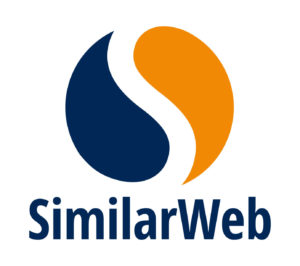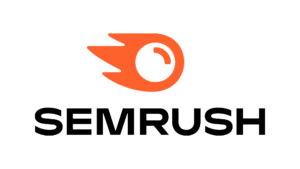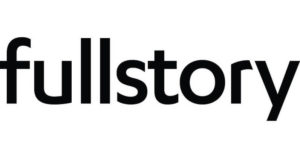The Best Product Research Tools for Product Management Teams
Are you scratching your head over the huge selection of product research tools on the market, not sure which to use for what?
At ProdPad, product research is in our DNA, so why not let us help you out? Here’s a run-through of the different types of product research and some of our favorite tools to help you dig up the answers you’re looking for.
In this article, we’ll look at, why we need to do product research, types of product research when to use it, and tools to use, including:
- Market research
- Usage analysis
- Customer feedback
- Prototyping
- Continuous customer feedback
Product research is vital, not only when you’re developing a new product but throughout a product’s lifespan – you need to continually iterate and refine any product. A product that doesn’t change is one that will fail faster than a product that adapts to market changes and changing customer needs.
Why product research tools are important
Preparation is key to effective research and analysis. If you’re not completely clear about the purpose of your research and what questions you want to ask before you start, then chances are you won’t get the answers you’re looking for. It’s all about determining what questions to ask, who to ask, what data could be valuable, and make sure you keep moving, and that you’re moving in the right direction.
There are lots of tools you can leverage to make this continual process easier, depending on the type of research you’re doing. So let’s start by splitting the tools into two types – market research and product research. Market research tools obviously come into play when you’re trying to get a fix on competitors, wider market movements, and the like. Product research tools encompass areas like product analytics, user testing, and user feedback in all its many and various forms.
It may seem like there’s an overwhelming selection of tools, so let’s take a closer look at some of the best products to choose from in each category.
Best tools for market research
You’ll turn to market research tools when you want to understand who your customers are, how you can reach them, what they need, and what they want from you. This might be at the initial stages of product discovery when you’re still trying to work out whether there’s a market need for the product you want to build. These tools are equally relevant when you’re considering moving into new markets, tweaking a product for a new customer base, or at any stage in an existing product’s lifecycle.
1. SimilarWeb

When you’re looking for information on web traffic then SimilarWeb is a good option to give you data analytics on desktop websites, mobile web, and mobile apps. SimilarWeb collects data from a wide variety of sources, creates clear graphics, and allows you to create custom dashboards.
It’s a good tool for getting information about web traffic, and for competitive analysis. It’s easy and intuitive to use. There are free and paid versions.
If you’re looking for a real-life example of SimilarWeb in action, then the global retail online marketplace AliExpress has used SimilarWeb to discover new referral traffic sources, evaluate performance, and scale affiliate partnerships on a country-by-country basis.
2. Semrush

Semrush is another market research tool often used for keyword research and online ranking data, including metrics like search volume and cost per click.
It’s a great tool for Google rank tracking, domain authority tracking, competitor analysis, backlink analysis, and keyword research – it collects information about online keywords gathered from Google and Bing. No free versions, but a number of subscription plans at different price points are available.
Another real-life example comes from Florida artisan bakery Edelweiss which has used Semrush to conduct competitor research and increase its organic mobile traffic by 460%.
3. Google Keyword Planner

Google’s Keyword Planner is a free tool that helps you research keywords for Search campaigns. You can use it to discover new keywords related to your business and see estimates of the searches they receive and the cost to target them. Among its attributes, it can help you to identify terms, phrases, and words that potential customers search for and show you historical trending and search volume data of keywords.
It’s a free tool but you need to have a Google Ads account to be able to use it.
Best tools for product research
There are lots of different disciplines within product research. You will want to analyze usage, manage your data and gather and analyze customer feedback. So let’s break down product research tools into a few categories relevant to the type of research you want to do.
Best usage analysis tools
Usage analytics are key to understanding customer behavior. By collecting data on your customers, you can understand how they behave and what they like. You can analyze the data to better understand what they want from your product and tailor it accordingly. There are lots of behavior analytics tools available and we’ve highlighted a couple of our favorites below.
1. Hotjar

Hotjar is a product experience insights tool that delivers behavior analytics and feedback data to help you empathize with and understand your customers through features like heatmaps, session recordings, and surveys.
It’s used by over a million websites worldwide, it’s easy to learn and easy to use, giving you clear and visual data points about what’s happening on your site so that you can spot opportunities to improve.
There is a range of subscription plans, from a basic free plan upwards, and lots of household names use it.
There’s a nice example of how a startup might use the product on the Hotjar site. A math practice app found that user signups had dropped by about 50% overnight. By running through the Hotjar user session recordings the product manager found there was a problem with an auto-complete feature the team had built to help users search through the thousands of schools on the app’s database, an easy fix.
2. Fullstory

Fullstory is a product boasting rich product analytics and robust session detail, helping you to optimize the customer experience. It automatically captures every interaction retroactively to give you full visibility over what your customers do when they use your product. FullStory offers a number of flexible plans depending on features and organization size. It also offers reduced pricing for startups, with a scholarship startup program for early-stage companies.
3. Mixpanel

Mixpanel is a great behavioral analytics tool for helping you to work out how users interact with your product. Data is sent from your user’s device or from your server to Mixpanel, and it allows you to analyze that user data in real time to identify trends and understand user behavior. Then you can use that analysis to make decisions about your product. You can also use this behavioral analytics data to target users and drive engagement and adoption.
Pricing ranges from free to custom enterprise plans and customers include businesses like Buzzfeed, Expedia, and Uber.
Best customer feedback tools
Increasingly businesses look to be customer-led – customer feedback is the bedrock of any product’s success. Whether it’s talking to customers, getting feedback from customers, or testing with customers, all are critical aspects of the product discovery process that help you form a clear picture of customer needs and how they change. Here’s our pick of the most useful tools that help a product manager get to the bottom of what their customers want from a product.
1. Calendly

Talking to your customers means pinning them down for a time to speak to you, so meeting scheduling software can be a game-changer when you’re trying to do this. We’ve probably all come across Calendly at some point, it’s a market leader in meeting scheduling software. There are free and paid versions, and the software eliminates the usual back and forth that goes with trying to set up a meeting. It will automatically generate video conferencing details when someone books with you and you and your invitee will also receive details via confirmation email and calendar event.
2. Zoom

Zoom is another incredibly useful product for customer feedback and another one that we’ve all come across at some point. Its usage blew up during the pandemic when meeting face-to-face became impossible, and it hasn’t slackened off since.
Zoom provides video telephony and online chat services. It also offers conference rooms for video meetings, virtual events, and contact centers. Video has the benefit of humanizing the feedback experience and that product people can potentially pick up on any non-verbal cues. Zoom also offers features like screen sharing so that any problems can be easily viewed. Meetings can be recorded and kept for later analysis and there are free and paid-for subscription plans.
Best tools for continuous customer feedback
1. ProdPad

Yes, it’s us! ProdPad helps you to create an effective continuous product discovery process by helping to capture the volume of feedback you receive, and then sifting through feedback to help you prioritize what needs to be done.
All your research will eventually inform your roadmap so that you can work out what needs to be done now, what should be done next, and what you can leave till later.
2. Intercom

Intercom helps over 25,000 organizations around the world to improve their customer support by using live chat and chatbots to deliver personalized conversations and automated support.
The software will show you who’s using your product and will help you to communicate with them with targeted content, behavior-driven messages, and conversational support.
There is a range of pricing plans depending on the features you want to use. It has lots of reference customers, including Atlassian and Amplitude.
Australian payments business Zip has used Intercom in its product research to speed up queries and help its customers to self-serve. The Zip support team used to scale support efficiently and estimates Intercom saved Zip about $500K in seven months.
3. SurveyMonkey

We’ve probably all come across or used SurveyMonkey (now known corporately as Momentive) at some point. It encompasses more than an online survey tool and has expertise in delivering products for experience management and corporate insights.
But sometimes, an online survey is just what you want to really understand what’s going on – for those times when you need a high volume of quantitative data, surveys can be a great way to gather customer feedback. And bear in mind that users tend to be more honest in surveys than they are in focus groups and that you can embed them in your software so that they collect and share data.
Pricing for SurveyMonkey ranges from a free but limited individual plan to feature-rich paid-for enterprise plans.
Best tools for prototyping
Prototyping is another weapon in your armory of product research and customer feedback tools. Building quickly and testing with users is a key way for product managers to answer questions and a working prototype can be the fastest way for everyone to visualize and resolve an issue.
1. Marvel

There are lots of good prototyping tools around, but Marvel is one we particularly like. You can use it to create a prototype of any digital platform, whether it’s an app, a wireframe, a website, or anything else that’s related to design. It’s user-friendly and has an easy learning curve. It allows you to create a prototype that demonstrates just how your finished product should look and behave to potential customers.
It’s available in a range of subscription plans, from a single-user free plan to enterprise paid-for plans.
And if you’re looking for an example of a business that uses Marvel, then app-based challenger bank Monzo is one that relies on the software to get feedback on its user flows. It even embeds Marvel prototypes into proposals for new features, no matter how rough they are.
Product research means you’re continually looking into and assessing the problems your customers have, and trying to understand them in a market context. Then you have to bring these elements together with analytics to see how people are using your product and how that usage might change.
Product research helps you to avoid bad decisions and keeps your product on the right track. Product research tools are an invaluable resource for a product manager – they help you to ensure that your product is the best it can be.

